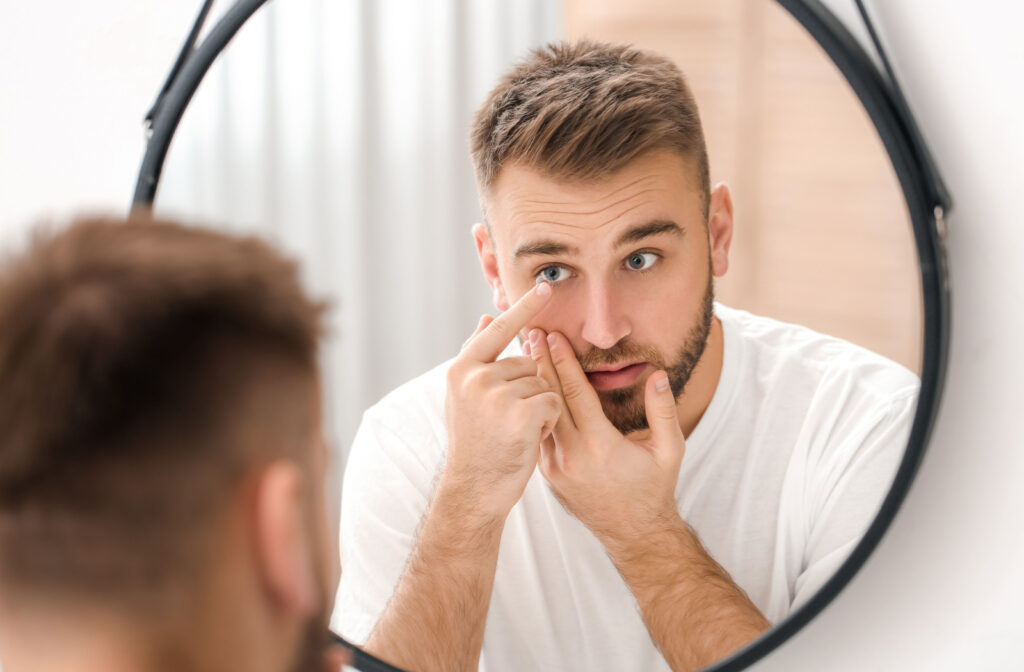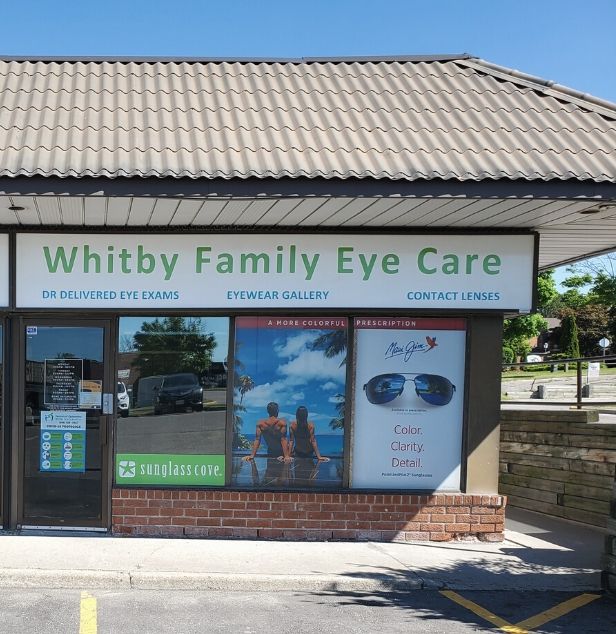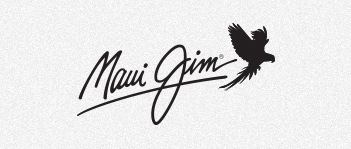Contact lenses have revolutionized the way people see the world. You no longer need to rely entirely on glasses—instead, you can have clear, comfortable vision readily available at any time. Disposable contact lenses have plenty of benefits, but with all the convenience, many people wonder: do contact lenses expire?
Every pair of contact lenses has their own expiration date. After this date, you should consider the contacts unsafe to use—they might begin to wear down, change shape, or stop being sterile. It’s important to regularly check the dates and replace your contact lenses once expired so you can avoid damaging your eyes.
How Long Do Contact Lenses Last?
Every pair of contacts is entirely unique and has its expiration date. And this date changes depending on the materials the lenses are made of, how they’re stored, and more. This is why the date is clearly printed on the outside of the box or case—it can be difficult to narrow it down on your own, so the manufacturer always labels it appropriately.
However, the type of lens plays an important role. There are several types of disposable contacts:
Each of these expires after a set length of time—so a pair of daily disposable lenses should always be discarded at the end of the day.
But here’s where things can get a little confusing. The materials matter as well! There are:
- Rigid gas-permeable lenses, made of a harder material. These are typically more long-lasting but may take some time to get used to.
- Soft lenses. Made of a silicone hydrogel material, these are much easier to get used to, but typically expire sooner. Most daily or weekly lenses are made of this material.
- Hybrid lenses, which incorporate both materials into the lens.
And then you have an entire world of specialty contacts, such as scleral lenses, designed to treat a variety of eye conditions! Because there are so many factors at play, it can be difficult to narrow down how long your contacts theoretically could last. This is why you should always follow the expiration date—past that printed date, you should consider your contacts unsafe to wear.
Why Do Contacts Expire?
Contact lenses are designed to maintain their sterility and integrity until the expiration date. Each lens is carefully sealed and packaged with a sterilizing solution to ensure its safety. Over time, the seals on the blister pack may become compromised, increasing the risk of contamination.
But the blister pack isn’t the only thing that matters. The sterilizing solution you store the lenses in can become compromised over time as well. If the blister pack and solution become compromised, a dark, damp, cool environment is created, one in which bacteria love to thrive. If your contact lenses become compromised with these organisms, they can transmit harmful and potentially vision threatening infections to your eyes—and that’s something you’d rather avoid!
But expiration is just one piece of the safety puzzle. It’s important to properly care for your contacts as well. If you don’t, you increase your risk of serious eye infections, called corneal ulcers. Proper care will also make your vision with contact lenses clearer and more comfortable!
Properly Caring for Contacts
When you’re caring for your contacts, it’s important to follow these steps:
- Wash your hands thoroughly with soap and water before handling your lenses.
- Remove one lens at a time and gently rub it with the recommended cleaning solution.
- Rinse the lens with the solution to remove any debris or residue.
- Place the lens in a clean lens case and fill it with fresh disinfecting solution.
- Repeat the process for the other lens.
- Store the lens case in a clean, dry, and well-ventilated area.
But remember, even with proper care, contact lenses have an expiration date. Regularly check the packaging to verify if you’re using fresh lenses. Using expired lenses increases the risk of eye infections and discomfort.

Contact Lens Fittings & Exams: What to Do if Your Contacts Expire
If your contact lenses have expired, it’s time to schedule a contact lens fitting and exam. During these exams, your optometrist can help check how healthy your eyes are and determine what type of lens is more suitable for you.
We’ll start by discussing your lifestyle and preferences and will consider any eye conditions you may have. For example, if you have astigmatism, we may recommend toric lenses, since these lenses are designed to help treat this condition.
Then, we’ll assess your vision, examine your eyes thoroughly, and take a series of measurements. Here at Whitby Family Eye Care, we use keratometry to measure the precise size, shape, and curvature of your cornea so we can get you the right pair of lenses.
Then, once we’re done, we’ll have you do a test run. We’ll send you home with a temporary set of contacts we believe will work for you. If you aren’t satisfied, come on back, and we’ll make modifications to make contact lens wear work for you. We want you to have clear, comfortable contacts, and we’re ready to help!
Replacing Your Contact Lenses
Never wear expired contacts—it puts you at a higher risk of developing vision threatening eye infections and other problems. It’s essential that you follow the recommended schedule for your contacts. And when it’s time to replace them, come visit us at Whitby Family Eye Care. We’re here to help, so request your appointment with us today!







